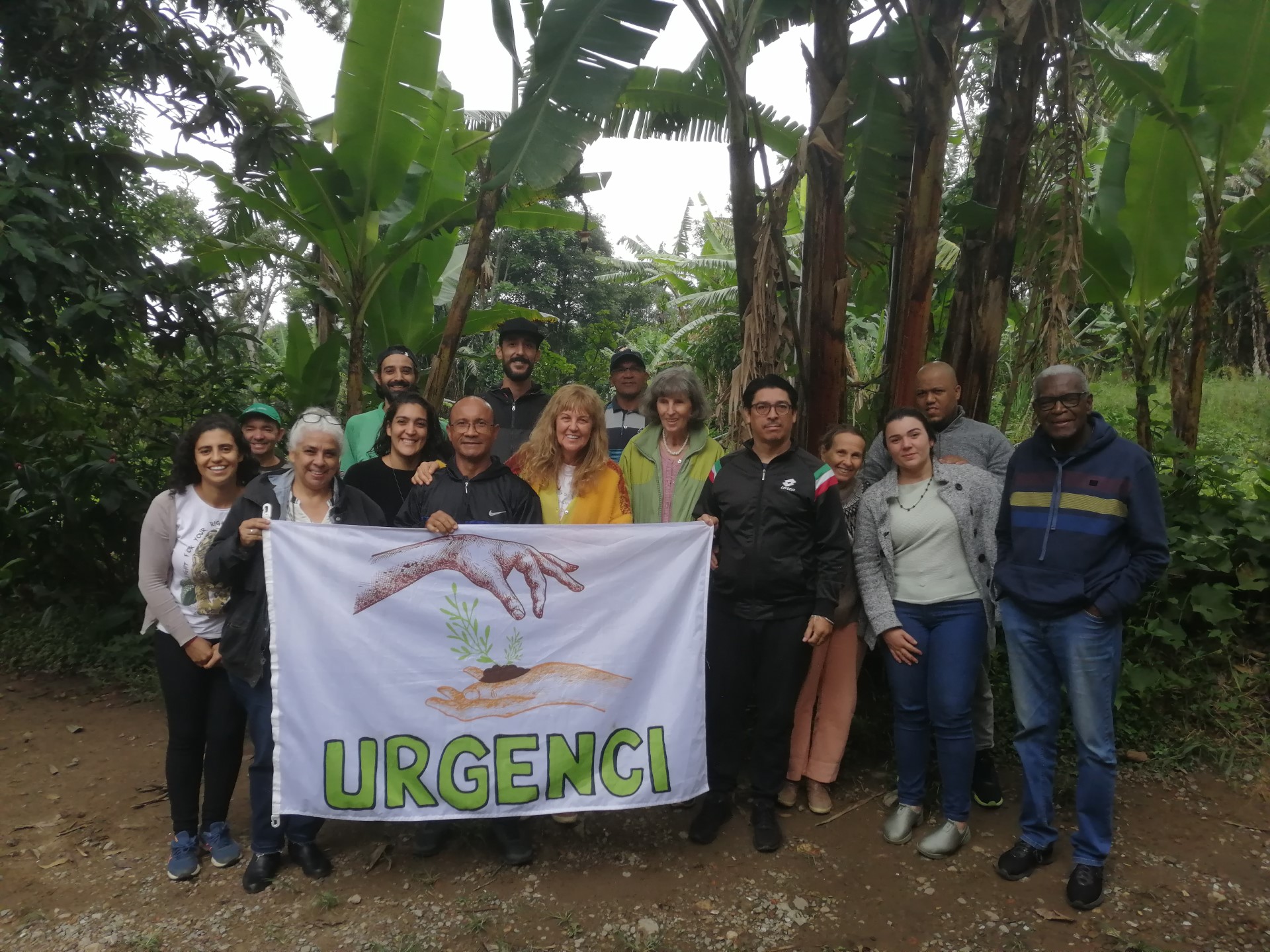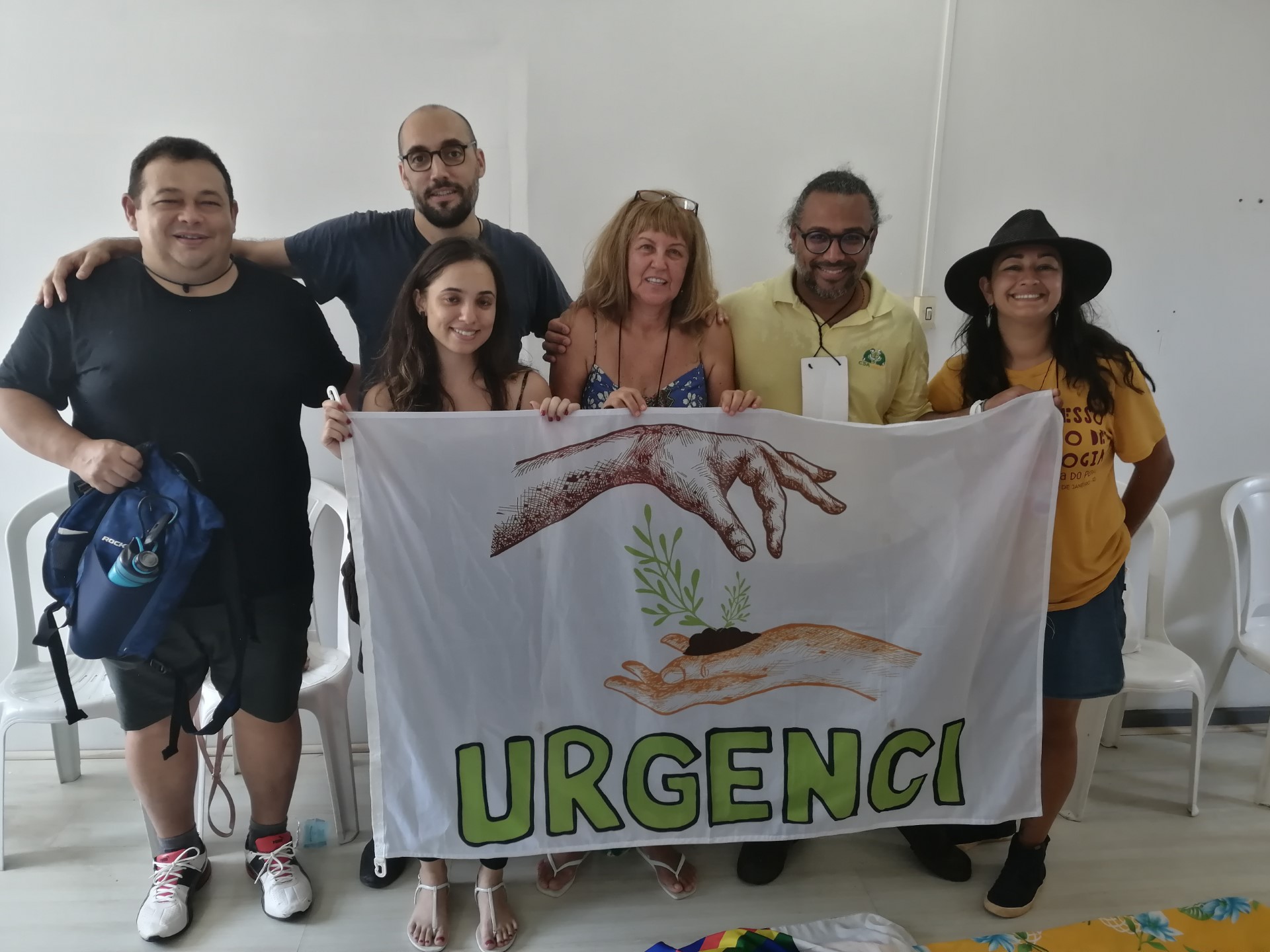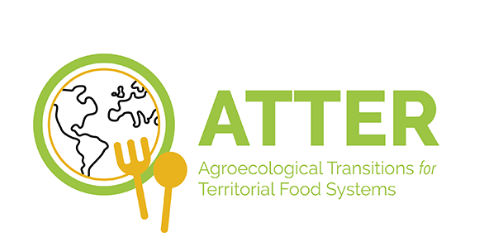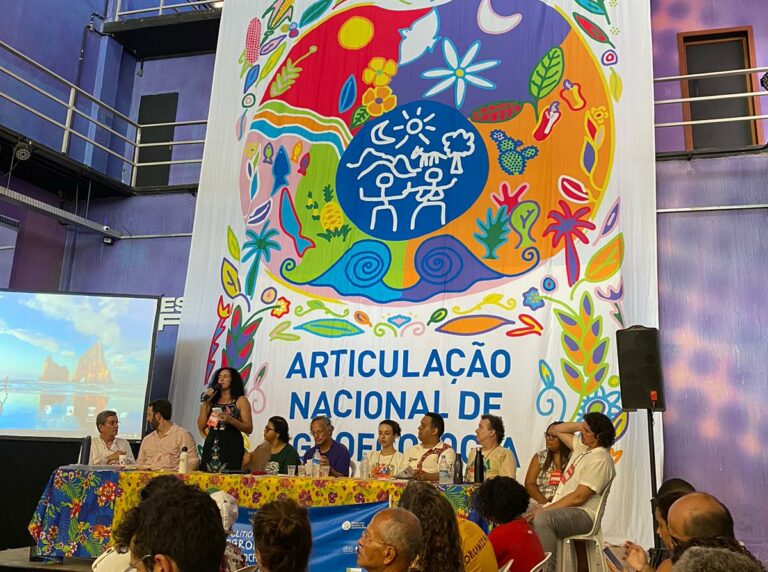Jocelyn Parot, General Secretary of the international network URGENCI and Scientific Collaborator at the University of Giessen,
The 12th Brazilian Agroecology Congress brought together over 5,000 activists in the centre of Rio de Janeiro on 20-23 November 2023. It had been four years since the last congress, and 20 years since the first one was held in Porto Alegre in 2003. Organized by the National Agroecological Articulation, it was a time for reconstruction after the blows inflicted by the Bolsonaro administration. It was also the meeting point for thousands of representatives of landless movements, indigenous peoples from all over Brazil, women in struggle, urban agroecologists, researchers and activists from political parties committed to agroecology. This gigantic multi-site conference had the feel of a festival, with film screenings and concerts throughout the day.
A Franco-Brazilian workshop from the ATTER research project on agro-ecological transitions at territorial level was held, with the participation of URGENCI. This workshop took place in one of the Knowledge Barracks in the Passeio Publico, a huge village with dozens of stands: First Nations crafts, regional culinary specialties (tacaca, açai, etc.), solidarity kitchens, social movement organizations, book sales – it was the beating heart of the Congress.
But it was elsewhere, in one of the Congress “tapirs”, that we met with members of CSA Brasil, Brazil’s Community-Supported Agriculture network. “Tapir” is a Tupi word meaning a place where people can get together to eat, talk and exchange knowledge and experience. The CSA Brasil network organized a workshop on health and agroecology. A large number of initiatives such as CASA, the Academic Community that Supports Agriculture, a kind of CSA set up within the Federal University of Rio de Janeiro, were presented, testifying to the great vitality of the agroecology movement. Once face-to-face contact had been established with the members of CSA Brasil, in-depth discussions took place, during which the key members of the network – Claudia, Ximena, Marcus and Wagner (the network’s only salaried employee) – presented the history, challenges and vision of the network. There was a great deal of motivation and a touch of emotion in our exchanges: I could feel a great deal of confidence and a sense of hope in the international network and, beyond that, in the worldwide CSA movement that I represented.
Following the Congress, at Claudia’s invitation, I travelled to Sao Paulo, where I was lucky enough to attend the General Assembly of CSA Horizonte Azul. This is a “historic” CSA, one of the first in Brazil, set up in a poor neighborhood with the support of the NGO Monte Azul. This lush market garden, with its many trees, is located in the middle of a megalopolis and feeds a nearby Walldorf nursery and school (applying the principles of anthroposophy), where children from disadvantaged families living in the district are educated. The Brazilian CSA movement was largely initiated by the biodynamic movement, while largely adopting the principles of the Teikei, the partnerships founded in Japan by the organic farming movement in the 1970s.

After a period of great difficulty, marked by the sudden departure of the farmer in charge of the farm, Horizonte Azul has been taken over in recent months by a group of young farmers and consumers who have carried out an in-depth diagnosis of the farm and re-organized the whole group. The support of the network, and in particular of one of the pioneers of the movement who is now intervening as CSA adviser and trainer, means that we can look forward to a more stable future for this CSA, one of around 200 partnerships that have been set up in Brazil over the last ten years. In a country where the percentage of food insecurity, i.e. the proportion of the population without guaranteed access to sufficient, healthy and appropriate food, which had fallen to 2.5% in 2014, has risen to 15.5% by 2022, representing 30 millions of food insecure people, the success of this solidarity project bears witness to the social and solidarity-based role that the CSA movement can play.



This work was realised within the ATTER (Agroecological Transitions for TERritorial food systems) project. This project has received funding from the European Union’s Horizon 2020 research and innovation programme under the Marie Skłodowska-Curie grant agreement No 101007755.


